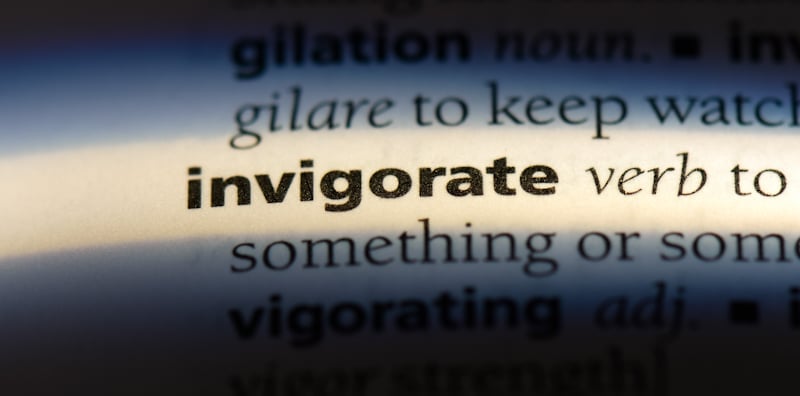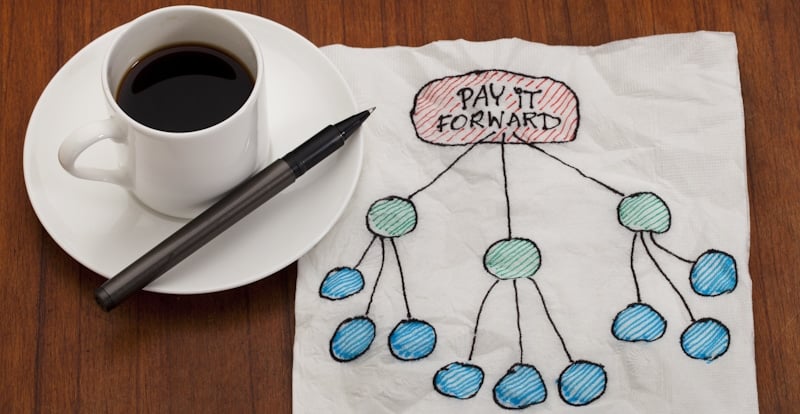Our language contains an almost infinite number of words that help us to express ourselves clearly. It is so vast that we could spend a lifetime without using all the words registered in the dictionary. Sometimes we use several terms of similar spelling to refer to the same concept. The point is that we may or may not be correct.
“Invigorate” is to impart vigor, strength, and vitality to someone else. “Envigorate” means almost the same thing and is the British way of writing invigorate. Experts indicate that we can use them interchangeably without altering the meaning of the sentence.
The difference between “invigorate” and “envigorate” is not much. However, we always have to be very careful in using words that share a full or partial meaning. The reason for that is because almost every word has a synonym. But there are cases in which a term can acquire different meanings over time. This situation explains why some words that were synonyms some time ago may not be so similar today.
The Origin Of These Words
As with many words of great antiquity, it is always difficult to obtain concrete data or verify information on their etymology. “Invigorate” and “envigorate” are no exception.
There are practically no records that describe the situation that originated the creation of these words. However, let us review the data we have found. This revision may give us an approximate idea of the antiquity of these words.
In the case of “envigorating,” we only know that it is the British way of writing and pronouncing invigorate. For this reason, we will review the origin of “invigorating” as the source of creation of both words.
Origin Of “Invigorating”
Few people know about the birth of this word. But we are going to refer to some dates that are related to its possible origin.
- One of the theories suggests that this term dates back to the year 1610. It comes from the old French language and derives from the word “envigor” to become “envigorer.”
- Historians also say that it originated in 1640.
- Other sources state that the word was first used in the middle of the 17th century and came from the Middle Latin “invigorat.”
“Invigorate” is to impart vigor. But this concept goes much further. It is to understand that this act of invigorating is not for oneself but to spread it to other people. This concept strongly connects with the “Pay it Forward” philosophy, which we will explain below.
The “Pay It Forward” Philosophy
“Pay it forward” is a phrase to describe a person who receives a good deed and then returns the favor but to different people. It is a chain of blessings.
This philosophy is an old concept. But in contemporary times, the writer Lily Hardy Hammond used it in her 1919 book “In the garden of delight.” In 1951, author Robert Heinlen helped popularize it with his novel “Between Planets.”
The concept of this phrase was used in the play Dyskolos, from ancient Athens in 317 BC. This play focused on the idea of Pay it forward. Unfortunately, the text of this play was lost. Police would later recover it in 1957.
In addition, the 1929 novel, by author Lloyd C. Douglas, “Magnificent Obsession,” adopted this philosophy. His work supported the idea that people should do good actions with confidence.
A member of Alcoholics Anonymous made a significant statement to a magazine in 1944. He said that you couldn’t repay someone for the favor they have done for you. Still, there is the possibility of finding someone else who you can help.
Mathematician Paul Erdos found a student with many potentials who didn’t have the money to enroll in Harvard. Eros gave the money to get this student into Harvard. Years later, the student wanted to return the funds to Eros. Eros preferred to find another student in the same situation and give him the money.
How Do People Use The Word Invigorate?
Below we will review some of the many uses of the word invigorate. First, it is interesting to see how many meanings and senses people assign to this word. But before that, let’s take a look at the four main definitions.
- Invigorate is to give life and energy to someone.
- Invigorate is to impart vigor, strength, and vitality to someone.
- Invigorate is to augment or intensify something or someone.
- Invigorate is to encourage or to make someone cheer up.
Among its main uses we have:
- We use it when we want to encourage someone to study a specific career or subject.
- We use it when a company of natural products or vitamins describes their effects as energizing or invigorating.
- We use it when advertising describes the ingredients of a product or the effects of a particular plant.
- When you want to say what the benefits of practicing yoga are for humans.
- When people dedicate extra time to the training or practice of a sport.
- When we want to tell someone to strengthen their interest in studies.
- We use it when we sell house paint and say that the finish will be refreshing.
- In war conflicts, we use it when a reporter says that one side or sector drives the fighting.
- When we want to talk about the benefits of food detox in the organism.
- When a person talks about how another person’s attractiveness lies in his or her vigor.
- When we want to talk about the positive results of an exercise routine.
- We use it when we expect an energy drink to give us the energy to stay awake all night.
- We use it when the company gives employees snacks and drinks to provide them with the energy to work long hours.
- When you want to say that the government stimulates the economy through incentives.
- We use it when we feel bad and want to say that a hot shower will cheer us up.
- When we water a plant, and hope that the water will penetrate and encourage it to continue to grow.
- When I think of something I like, it helps me start the day with encouragement and energy.
- When teachers work on curricula that help motivate their students.
- When we look forward to a pay raise to boost our spending and investment levels.
- When a factory sets up shop in a town or rural area, and the owners expect it to boost the local economy.
- When a manager gives a fringe benefit to employees, it will drive them to continue to improve.
Examples Of The Use Of The Word “Invigorate” In Everyday Sentences
We reviewed and understood the word invigorate from all angles:
- We learned what differentiates it from envigorate.
- We studied the different versions of its origin.
- We are ready to understand the various senses it can have in everyday life.
Now it is time to look at some concrete examples of sentences. These situations can arise at any time. It is wise to recognize that it is not such a commonly used word. But that doesn’t mean that we will not be able to use it when the right situation arises. Let’s review some examples of invigorate.
- I would have felt invigorated if you had told me the truth at the right time.
- The pay raise Mary received invigorates her to do things much better.
- That meringue you gave me yesterday invigorated me all day long.
- I recommend the vitamins I bought a month ago; they will invigorate you in a way you haven’t experienced in some time.
A Final Thought On Today’s Words
On this journey towards understanding invigorate, we have encountered many fascinating details. Using our vocabulary correctly is vital. It’s not just about grammar or the intent we project. It is about recognizing when we can use a particular word. It is important to keep in mind that all words have their precise space, and the opportunity to use them in the correct manner will surely present itself. We hope that you will be able to use this word naturally and simply from now on. But, first, remember to identify the most appropriate context.
Shawn Manaher is the founder and CEO of The Content Authority. He’s one part content manager, one part writing ninja organizer, and two parts leader of top content creators. You don’t even want to know what he calls pancakes.




